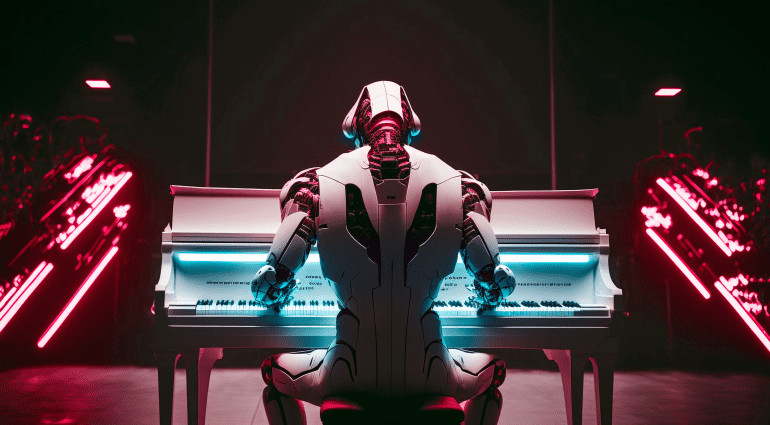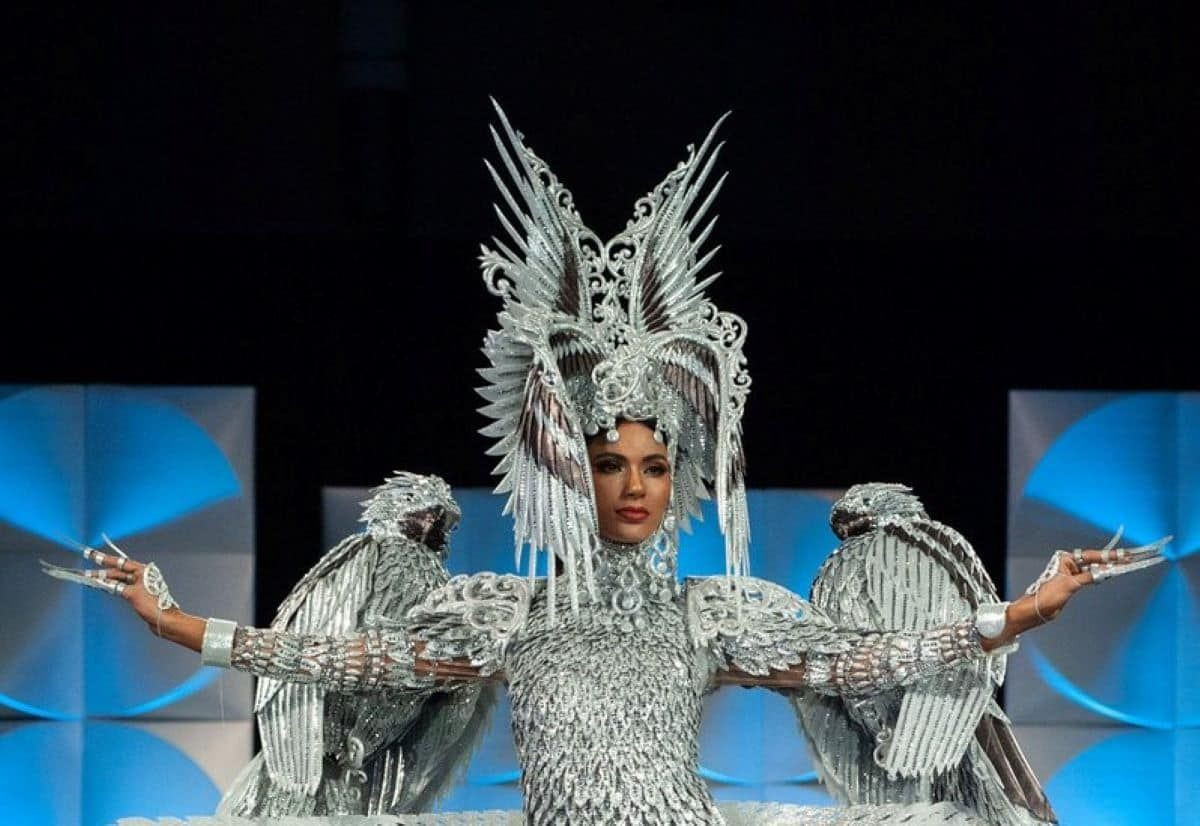The Rise of AI in the Music Industry: A New Era of Composition?
For centuries, the creative process of music composition has been a uniquely human endeavor. Musicians poured their emotions, experiences, and inspirations onto the canvas of sound, crafting melodies that resonated with listeners on a deeply personal level. However, the winds of change are blowing through the music industry as artificial intelligence (AI) emerges as a powerful force, challenging traditional methods of music creation.
The burgeoning field of AI music composition has captivated the attention of musicians, industry professionals, and music lovers alike. While some embrace the potential of AI as a creative collaborator, others harbor concerns about its impact on the artistic integrity of music. This article delves into the fascinating world of AI music composition, exploring its capabilities, limitations, and the potential implications for the future of the music industry.
The Technological Underpinnings of AI Music Composition
The ability of AI to create music stems from a combination of sophisticated algorithms and vast datasets. AI models are trained on massive libraries of musical pieces, allowing them to learn patterns, structures, and styles. These models can then generate new melodies, harmonies, and rhythms that mimic the characteristics of their training data. The sophistication of these AI models has reached a point where they can generate music that is indistinguishable from human-composed pieces, even replicating the unique styles of specific composers or musical genres.
One of the most commonly used techniques in AI music composition is known as Generative Adversarial Networks (GANs). GANs consist of two neural networks: a generator and a discriminator. The generator creates music samples, while the discriminator evaluates the authenticity of these samples, distinguishing them from real music. This ongoing battle between generator and discriminator leads to a continuous refinement of the AI's music-generating abilities, resulting in more sophisticated and convincing compositions. The power of GANs has enabled AI to create music that exhibits a high level of artistic merit, even surpassing human creativity in certain aspects.
The Capabilities of AI in Music Composition
The applications of AI in music composition are vast and expanding rapidly. AI tools can assist musicians with various tasks, from generating initial musical ideas to orchestrating entire pieces. Some of the key capabilities of AI in music composition include:
Generating Musical Ideas and Melodies
AI models can be prompted to generate melodies that adhere to specific musical parameters, such as key signature, tempo, and style. This allows musicians to explore new musical ideas and overcome creative blocks. For instance, a musician struggling to write a catchy chorus could use an AI tool to generate a variety of melodic options, providing inspiration and direction. The possibilities are endless, ranging from composing simple melodies to crafting intricate counterpoint sections.
Harmonizing and Arranging Music
AI can analyze existing melodies and generate harmonic progressions that complement the musical context. This can be particularly helpful for musicians who struggle with harmony or desire to explore different harmonic possibilities. AI tools can also assist with arranging music by suggesting appropriate instrumentation and creating realistic sounding orchestrations. These capabilities offer invaluable assistance to composers seeking to enhance the richness and depth of their musical compositions.
Composing Full-Length Pieces
AI models are now capable of composing entire musical pieces, from intro to outro. This has opened up new avenues for creative exploration, allowing musicians to collaborate with AI to create unique and innovative works of art. The AI can be tasked with composing different sections of a piece, while the human musician can refine and polish the overall composition, adding their own artistic touch.
Creating Music in Different Styles and Genres
AI can be trained on music from various genres, including classical, jazz, pop, rock, and electronic. This enables AI models to generate music that emulates the specific characteristics of each genre, providing composers with a versatile tool for creating music that spans a wide range of musical styles. This adaptability is crucial for musicians who want to explore new musical frontiers or cater to diverse audiences.
The Ethical and Philosophical Implications of AI Music Composition
The emergence of AI music composition has ignited a lively debate about the role of AI in music creation and its impact on the artistic landscape. Some key ethical and philosophical considerations include:
The Authenticity and Originality of AI-Generated Music
As AI models become increasingly sophisticated, the line between human-composed music and AI-generated music blurs. Some argue that music created by AI lacks the emotional depth and originality of human expression. They question whether AI can truly capture the essence of human experience and translate it into meaningful musical compositions. This debate raises fundamental questions about the nature of creativity and the role of emotion in artistic expression.
The Impact of AI on the Role of the Musician
The rise of AI in music composition has led to concerns about the future of the music profession. Some fear that AI could replace human musicians, making their skills obsolete. Others argue that AI will not replace musicians but will instead augment their capabilities, providing new tools and opportunities for creative expression. The true impact of AI on the role of the musician remains to be seen, and it is essential to consider the potential benefits and challenges that AI brings to the music profession.
The Ownership and Copyright of AI-Generated Music
Legal questions surrounding the ownership and copyright of AI-generated music are complex and evolving. Who owns the rights to music created by an AI system? Is it the programmer who created the AI, the user who input the prompts, or the AI itself? These questions are likely to be debated in courtrooms and legislative halls as AI continues to play a larger role in music creation.
The Future of AI in Music Composition
The future of AI in music composition is brimming with possibilities. As AI technology continues to advance, we can expect to see even more sophisticated and innovative applications. AI could potentially be used to create immersive musical experiences, personalize music recommendations, and even develop new musical instruments. The possibilities are endless, and the future of music is likely to be shaped by the creative synergy between human and AI.
The Role of Human Musicians in the Age of AI
The emergence of AI in music composition does not signal the demise of human musicians. Instead, it presents a unique opportunity for collaboration and creative exploration. Musicians can embrace AI as a powerful tool, leveraging its capabilities to enhance their own artistic expression. The future of music is likely to be characterized by a fusion of human creativity and AI innovation, where each complements and enriches the other.
The Music of Tomorrow: A Symphony of Human and AI?
The journey of AI in music composition is just beginning. As AI models become increasingly sophisticated and versatile, their role in music creation will undoubtedly grow. The key to navigating this evolving landscape lies in fostering a collaborative approach between human musicians and AI technology. By embracing the potential of AI while preserving the unique essence of human creativity, we can usher in a new era of musical expression that is both captivating and groundbreaking.
The music of tomorrow holds the promise of a symphony of human and AI, where the boundaries of musical imagination are pushed to their limits. Whether AI will truly be able to capture the soul of music remains to be seen, but the journey itself is a testament to the boundless potential of human creativity and the ever-evolving relationship between technology and art.

















